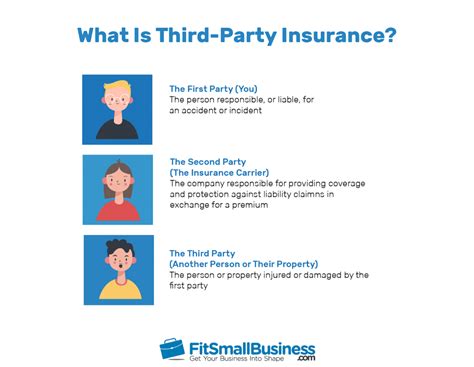Learn about the benefits of group insurance, eligibility criteria, and how to choose the right plan. Understand the differences between group and individual policies.
Understanding Group Insurance
Contents
Group insurance is a type of insurance coverage that is provided to a group of people, typically employees of a company or members of an organization. This type of insurance is usually more affordable than individual insurance policies, as the risk is spread across a larger group of people. Group insurance plans are often offered as part of an employee benefits package, and may include coverage for health, dental, life, and disability insurance.
Employers may choose to offer group insurance as a way to attract and retain employees, as it provides a valuable benefit to workers at a lower cost than if they were to purchase individual insurance on their own. Group insurance plans are also subject to different regulations than individual insurance policies, and may provide certain protections and benefits that individual plans do not.
When it comes to understanding group insurance, it’s important to consider the coverage options, cost, and eligibility requirements. Group insurance plans are often customizable to fit the needs of the group, and may include options for additional coverage at a group rate. To qualify for group insurance coverage, an individual typically needs to be a member of the group offering the plan, such as an employee of a company, or a member of an organization.
In summary, group insurance is a valuable benefit that can provide affordable coverage to a group of people. Whether offered as part of an employee benefits package or through a membership organization, group insurance plans offer benefits and protections that can be advantageous to members. Understanding the options, costs, and eligibility requirements for group insurance can help individuals make informed decisions when choosing the right coverage for their needs.
Benefits of Group Insurance Policies
Group insurance policies provide a wide range of benefits for both employers and employees. These policies offer coverage for a group of people, such as employees of a company or members of an organization, and are often more cost-effective than individual insurance plans. One of the key benefits of group insurance is that it typically includes a variety of coverage options, including health, dental, vision, and life insurance.
Another important advantage of group insurance policies is that they often have lower premiums and deductibles compared to individual plans. This can make it more affordable for employees to access the insurance coverage they need, especially for those who may have pre-existing medical conditions. Additionally, group insurance policies are often easier to manage and administer, as they cover all eligible members under a single master policy.
Group insurance also provides the benefit of spreading risk among a larger pool of participants, which can help stabilize insurance costs over time. This can be particularly beneficial for small businesses or organizations with a limited budget for insurance expenses. By pooling resources, group insurance policies can provide comprehensive coverage at a more manageable cost, making it an attractive option for both employers and employees.
Furthermore, group insurance policies may offer additional perks, such as wellness programs, employee assistance services, and flexible spending accounts. These added benefits can enhance the overall value of the insurance coverage and contribute to the well-being of the insured members. Additionally, group insurance policies are often customizable to meet the specific needs and requirements of the group, providing a tailored approach to insurance coverage.
Eligibility for Group Insurance Coverage
Group insurance coverage is a valuable benefit offered by many employers, providing employees with access to a range of insurance products at competitive group rates. However, not all employees may be eligible for this coverage. Eligibility for group insurance coverage typically depends on the number of hours worked, length of employment, and job status.
For full-time employees, eligibility for group insurance coverage is usually automatic, with benefits kicking in after a probationary period. Part-time employees may also be eligible, depending on the number of hours worked per week or month. Some employers offer group insurance coverage to all employees, regardless of their work status, while others may have minimum hour requirements for eligibility.
Length of employment is another factor that may determine eligibility for group insurance coverage. Some employers require employees to have worked for a certain length of time, such as six months or a year, before they become eligible for coverage. Others may offer coverage immediately upon hire.
Job status can also impact eligibility for group insurance coverage. For example, temporary or seasonal employees may not be eligible for coverage, while regular full-time or part-time employees are. In some cases, union members or employees in certain job roles may have different eligibility requirements.
Group Insurance vs. Individual Policies
When it comes to choosing the right insurance policy, it’s important to understand the differences between group insurance and individual policies. Group insurance is typically offered through an employer or organization, providing coverage to a group of people. On the other hand, individual policies are purchased directly from an insurance company to provide coverage for an individual or family.
In terms of cost, group insurance policies are often more affordable than individual policies. This is because group insurance spreads the risk among a larger pool of people, which can lower the overall cost for each member. Individual policies, however, are tailored to the specific needs of the individual or family and may come with higher premiums.
Another key difference between group insurance and individual policies is the level of customization. Group insurance policies often offer limited options for customization, as they are designed to provide standardized coverage to a large group of individuals. Individual policies, on the other hand, allow for more flexibility in choosing coverage options, deductibles, and limits based on the individual’s needs and preferences.
Additionally, group insurance policies may have less stringent underwriting requirements compared to individual policies. This means that individuals with pre-existing health conditions or other risk factors may have an easier time obtaining coverage through a group policy, whereas they may face challenges or higher premiums when applying for an individual policy.
Ultimately, the decision between group insurance and individual policies depends on the specific needs and circumstances of the individual or family. While group insurance may offer cost savings and easier access to coverage, individual policies provide greater flexibility and customization options. It’s important to carefully evaluate the benefits and limitations of each type of policy before making a decision.
How to Choose the Right Group Insurance Plan
Choosing the right group insurance plan can be a daunting task, but it is essential to ensure that you and your employees are well-protected. The first step in selecting the right plan is to assess the needs of your employees. Consider factors such as age, health conditions, and family size to determine the level of coverage required.
Next, it’s important to carefully review the coverage options offered by different insurance providers. Look for plans that offer a comprehensive range of benefits, including health, dental, and vision coverage. Compare the co-payments, deductibles, and out-of-pocket maximums to find a plan that offers the best value for your employees.
Another crucial factor to consider is the network of healthcare providers and facilities included in the plan. Ensure that the plan provides access to a wide network of doctors, specialists, and hospitals to give your employees the flexibility to choose their preferred healthcare providers.
Additionally, it’s important to consider the cost of the plan. While it’s important to offer comprehensive coverage, it’s also essential to find a plan that is cost-effective for both your company and your employees. Look for plans that offer competitive premiums and provide value for money.
Finally, consider seeking the assistance of an experienced insurance broker who can help you navigate the complexities of group insurance plans and find the best option for your company. A knowledgeable broker can provide valuable insights and recommendations based on your company’s specific needs and budget.












